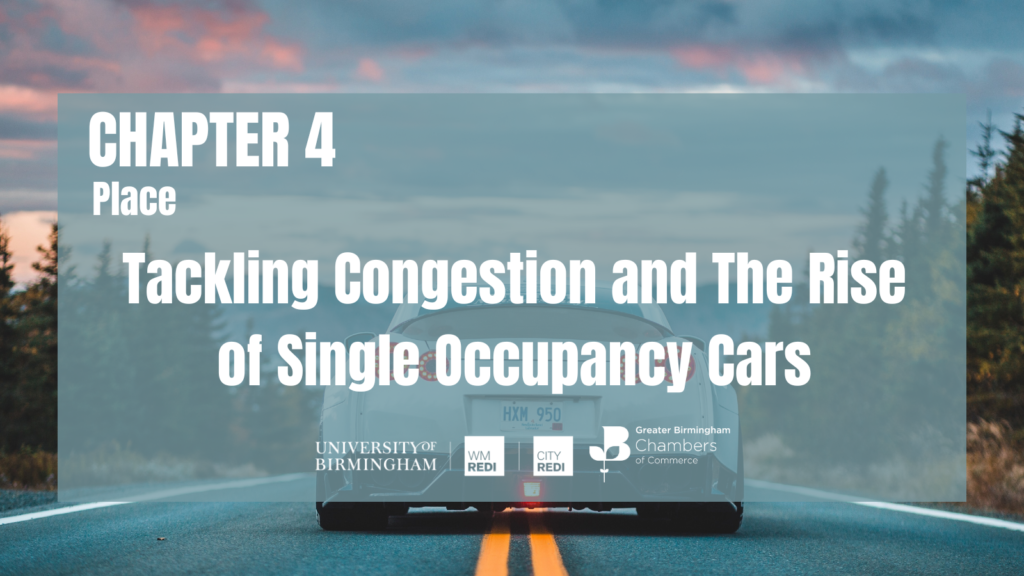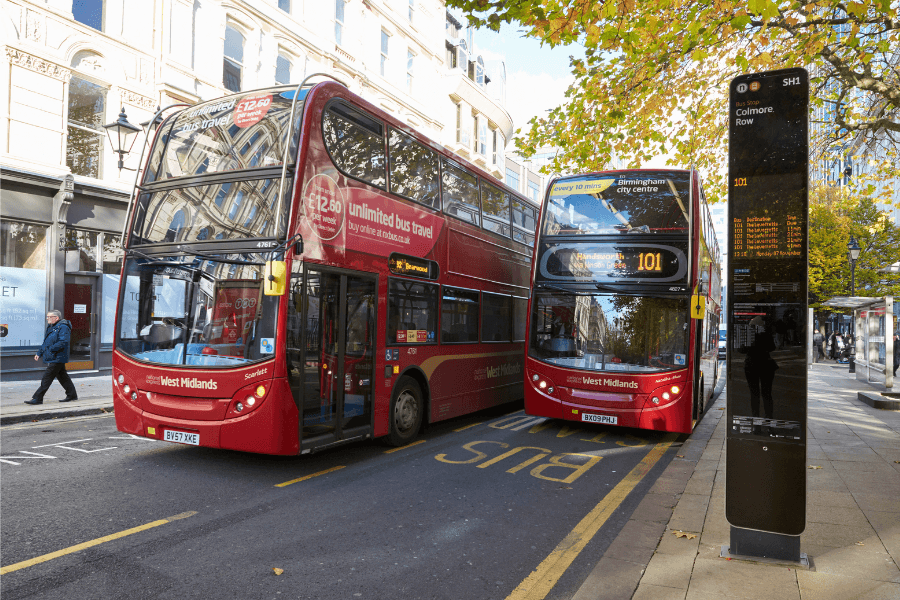
Daljit Kalirai, Sales & Partnerships Director at National Express, explains that by prioritizing mass transit, reducing congestion, and fostering partnerships with businesses to promote commuting by bus, the West Midlands can mitigate environmental damage and stimulate economic growth.
This article was written for the Birmingham Economic Review 2023.
The review is produced by City-REDI/ WMREDI, the University of Birmingham and the Greater Birmingham Chambers of Commerce. It is an in-depth exploration of the economy of England’s second city and a high-quality resource for informing research, policy and investment decisions.
We only need to look back on climate disasters in the news recently with wildfires in Greece and flash floods in Italy. Displacing thousands of people and costing billions across the globe. Can we really afford to ignore the climate agenda, and look the other way?
We will never combat climate change if we don’t tackle congestion and the rise of single-occupancy cars. And to make buses the first choice we will have to deliver a service that the public wants. We must make buses more frequent, more reliable and affordable.
To save the planet, we need to plan for a modal shift of at least 20%+ and not the odd one or two per cent regarded as ‘success’ in the last couple of decades.
Congestion
Current levels of urban traffic are not sustainable and will do serious environmental and health damage. A significant modal shift from the private car to active travel and mass transit is imperative. The only way that will be achieved in the required timescale is through a major modal shift to bus and that requires major policy change by local and national governments. In short;
- Buses are stuck behind rows of single-occupancy cars.
- We need local traffic/highway authorities to prioritise the movement of people & clean air over cars & pollution.
- We need businesses to join us in lobbying stakeholders, changing their policies around staff parking and supporting staff travelling to workplaces.
- We need to be bold and state clearly the damage car-led cities are doing and the benefits to communities.
Buses are simply not allowed to do their job and, if they were, they would be a self-funding, growing commercial consumer product in our major cities. Revenue from organic growth and modal shift trumps subsidy to cover costs of sitting in traffic.

We should be focused on managing the sensible allocation of road space to mass transit, constraining single-person car commuting and creating modal shifts, self-sustaining bus networks and saving lives from unacceptable levels of air pollution.
Role of business
It is time to wake up and get serious, if we want a significant modal shift, the business community plays a major part in helping create the type of environment that supports the contribution of bus commuting to reducing their own carbon footprint and lobby for a much improved urban bus operating environment to not only allow their staff to travel to work sustainably but also quickly and efficiently.
The bus industry needs heavyweight allies to support the case for bus priority over cars.
National Express has been working with the NHS across the trusts in the West Midlands. Facing limited car parking on-site University Hospital Birmingham was eager to encourage staff to use other modes of transport championing bus travel as a convenient, affordable and sustainable proposition. In addition to their 10% staff discounts, we targeted new starters recognising the first few weeks of employment are crucial in forming new habits.
Recommendation
Our recommendation was to offer a free week’s travel as part of the new starter induction programme so they could try travelling to work by bus. In the first few months of the scheme going live over 190 new starters benefited from free bus travel leading to 57% continuing to use the bus rather than travel by car. The scheme has been so successful that it has been rolled out across a further seven trusts and is going from strength to strength.
More than 60% of the NHS carbon footprint is based within the NHS supply chain including its workforce, patients and visitors.
The scheme makes use of discount codes redeemed within the National Express Bus App, allowing organisations across the region to partner with National Express to offer their employees discounted tickets when purchased using the app. We offer a range of sustainable options as an alternative to traditional bus services to help people continue their more flexible and sustainable public transport commute.
Scarce public money
A clear message: developing bus networks can be enhanced by creative commercial partnerships rather than a begging bowl for government funding. Innovation, partnership and creativity are a core part of growing patronage of vital bus services and achieving a modal shift. Growth has to be generated by better quality bus services, dramatically higher frequency, faster journeys and better value fares.
In conclusion, focusing on reducing congestion, transitioning away from single-occupancy cars, and aligning with the net-zero agenda is not just an environmental necessity but a strategic move to reinvigorate the local economy in the West Midlands. It creates a win-win situation where the region benefits from reduced congestion, improved air quality, enhanced sustainability, and economic growth, all while contributing to the global effort to combat climate change. Embracing these changes positions the West Midlands as a leader in sustainable urban development and sets a positive example for other regions facing similar challenges.
It is time to call a halt to our major towns and cities being dominated by cars, highways, car parks and all the other paraphernalia associated with cars being used excessively and much greater investment and emphasis put on good old-fashioned walking, cycling and riding on a zero-emission bus.
This blog was written by Daljit Kalirai, Sales & Partnerships Director at National Express.
Disclaimer:
The views expressed in this analysis post are those of the author and not necessarily those of City-REDI/ WMREDI or the University of Birmingham.
